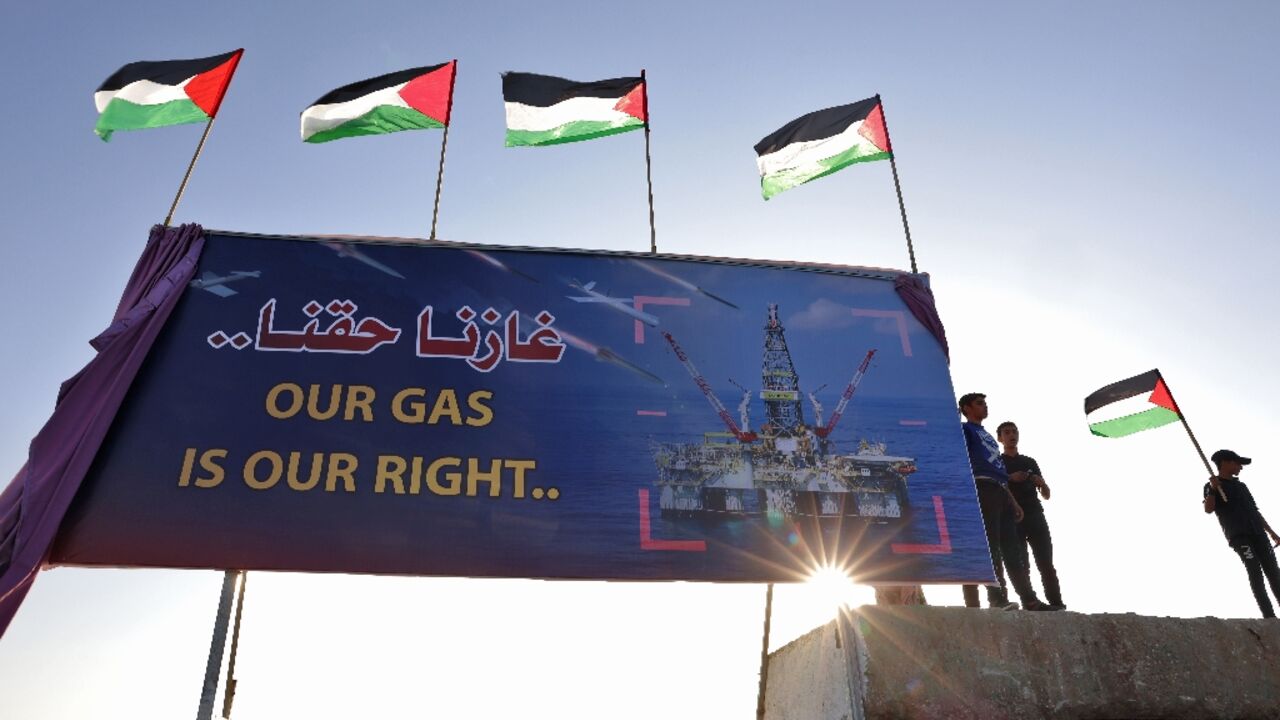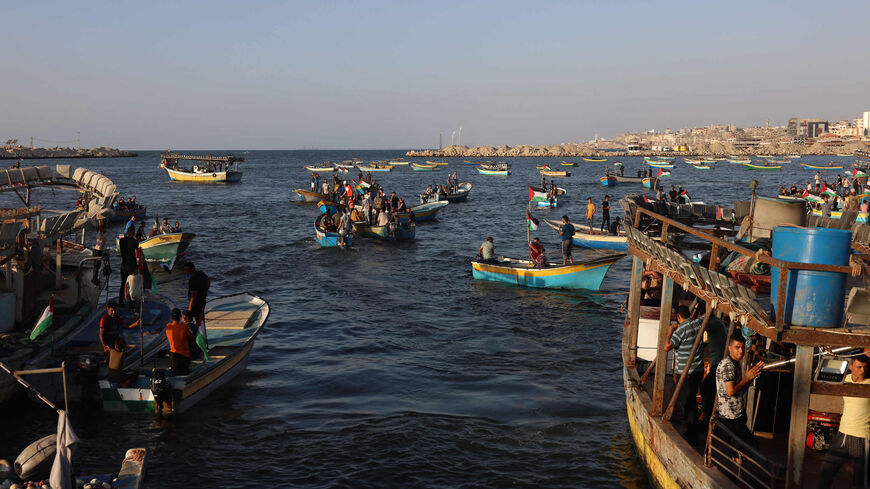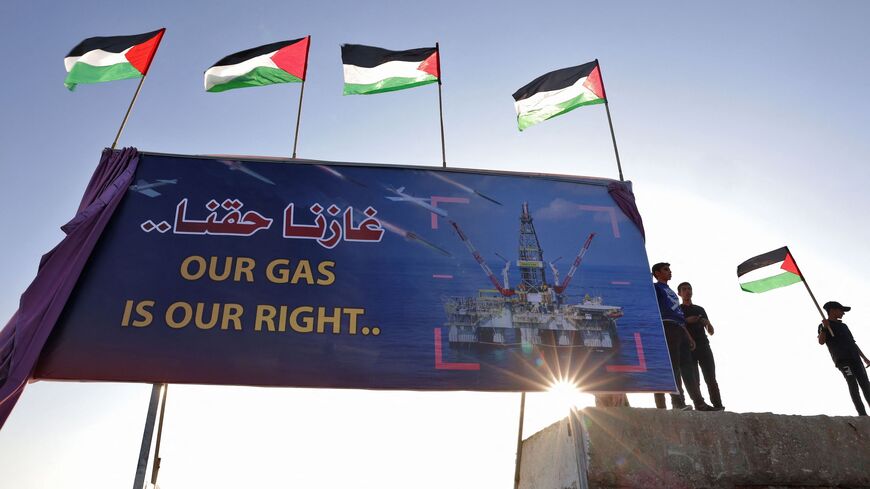Egypt mediates talks to develop Gaza offshore gas

As Israel and Lebanon moved to resolve a dispute involving offshore gas fields, Egypt has been working with Israeli and Palestinian officials to unlock natural gas production off Gaza's coast.
More than two decades since exploration began, the struggling Palestinian economy could reap huge benefits from natural gas reserves, and a Palestinian official has said an agreement may be imminent.
Banners reading: "Our gas is our right" in both Arabic and English have appeared in Gaza City's fishing port, calling on neighbouring Egypt and Israel to revive a plan to develop the Marine 1 and 2 fields in the Mediterranean.
The Palestinian Authority (PA) had commissioned energy firm British Gas to conduct gas exploration in the area back in 1999.
A year later, British Gas found Marine 1 about 30 kilometres (19 miles) out to sea, and later the smaller Marine 2, but eventually withdrew from the contract.
The project was handed over to energy giant Shell in 2016 only for it to pull out too two years later over Israeli objections and other disputes.
Since then, the Palestinians have been looking for investors in the $1.1 billion project to extract the estimated 28 billion cubic metres (989 billion cubic feet) of natural gas.
Israel has held sporadic talks over the years with the Palestinian Authority -- but the PA has exercised no control over Gaza for the past decade and a half.
The Islamist Hamas movement ousted forces loyal to the PA from the territory in 2007. It, too, would like a share of any gas revenues.
Hamas and the secular Fatah movement, which dominates the PA, signed a reconciliation deal on Thursday in their latest attempt to end the rift, but it remains unclear if this agreement will bear any more fruit than its predecessors.
An Egyptian source told AFP that Cairo has been "in contact with all parties, including Israel, to develop and profit from Gaza's gas reserves, which would also support the Palestinian economy".
- Israeli green light -
A senior PA official told AFP that "serious talks" were underway to reach a framework agreement by the end of the year.
The talks include Palestinian engineering firm Consolidated Contractors Company, the Palestinian Investment Fund, Egyptian Natural Gas Holding Company (EGAS) and Israel.
"Once an agreement is signed, the Egyptian company EGAS will commence work to develop the Marine 1 and 2 gas fields, with the aim of starting production within two years," the official said, speaking on condition of anonymity.
But "Israel's approval is necessary" before any work can begin, another PA official involved in the talks told AFP.
Israeli Energy Minister Karine Elharrar declined to comment when contacted by AFP.
The Palestinian official expressed hope Egypt could convince Israel to greenlight the project, and that the United States could influence the Jewish state, as it did in the US-brokered maritime border talks with Lebanon that bore fruit this week.
Israel, Egypt and the Palestinian Authority are all members of the East Mediterranean Gas Forum, established in 2019 with Jordan, Cyprus, Greece and Italy to coordinate the management of gas resources in the region.
Israel also exports gas to Egypt through a seafloor pipeline that runs off the Gaza coast, some of which is then liquefied and shipped to Europe.
- Hamas pressure -
Hamas has been growing impatient, organising demonstrations to demand that the rights of the Palestinians over gas resources are protected.
"We warn the occupation (Israel) against any infringement of our rights to our maritime resources, particularly natural gas off our coast," said Suhail al-Hindi, a Hamas official in charge of managing natural resources.
Islamic University of Gaza economics professor, Mazen al-Ajla, said Israel would never tolerate Hamas profiting from the gas reserves but said any deal would require at least tacit approval from the Islamists.
"Israel insists Hamas must not benefit from Gaza's gas as a condition for any agreement," Ajla told AFP.
"I still believe Egypt can solve this problem by putting pressure on Hamas.
"From a legal standpoint, Hamas has nothing to do with Gaza's gas but, since it controls the enclave, it could easily obstruct" the project.










